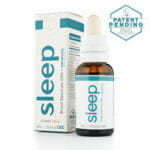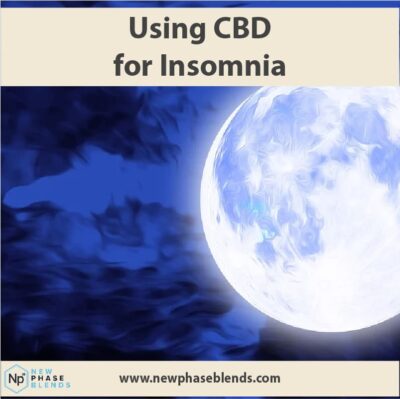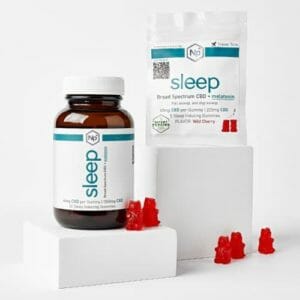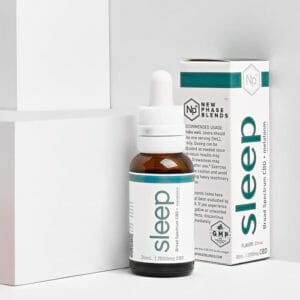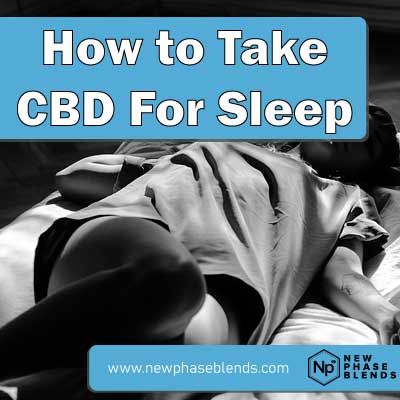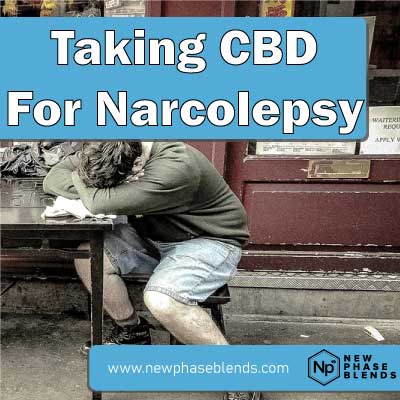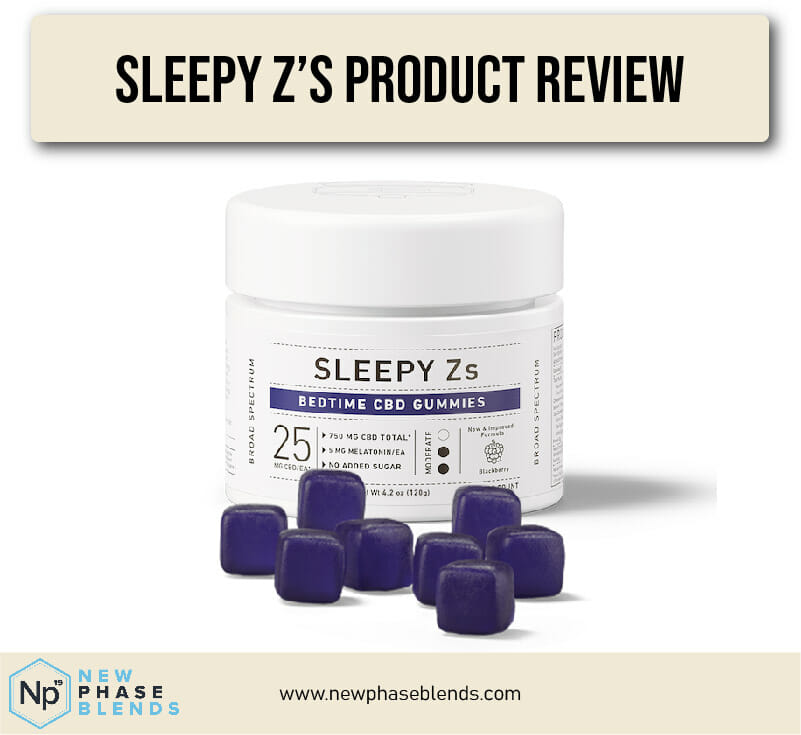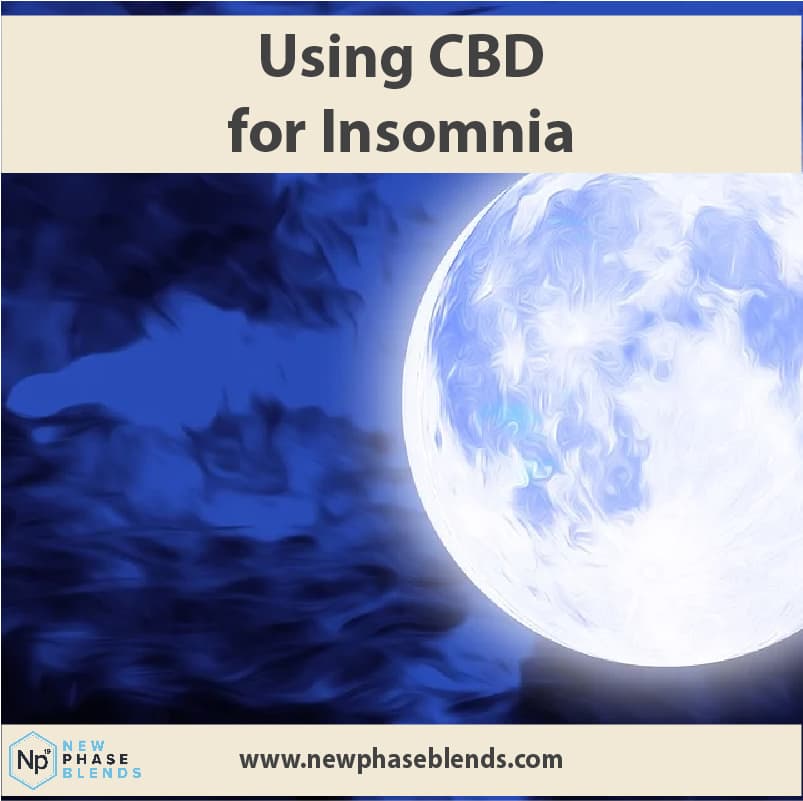If insomnia has become your unwelcome bedtime companion, you’re likely exploring every possible solution. Increasingly, people are turning to CBD as a potential natural remedy for sleep troubles. As people who have extensively researched sleep disorders and natural treatments, our staff has compiled this comprehensive guide to help you understand how CBD might help with insomnia, proper dosing guidelines, and what to realistically expect.
In this article, you’ll discover the science behind CBD for sleep, practical guidelines on using CBD effectively for insomnia, and evidence-based information to help you make informed decisions about incorporating CBD into your sleep routine.
How CBD Could Help Prevent Insomnia: The Science
CBD (cannabidiol) is one of over 100 compounds found in the cannabis plant. Unlike its cousin THC (tetrahydrocannabinol), CBD doesn’t produce intoxicating effects or the “high” associated with cannabis.
The potential sleep benefits of CBD are linked to its interaction with the endocannabinoid system (ECS), a complex cell-signaling system that plays a role in regulating numerous physiological processes, including sleep-wake cycles.
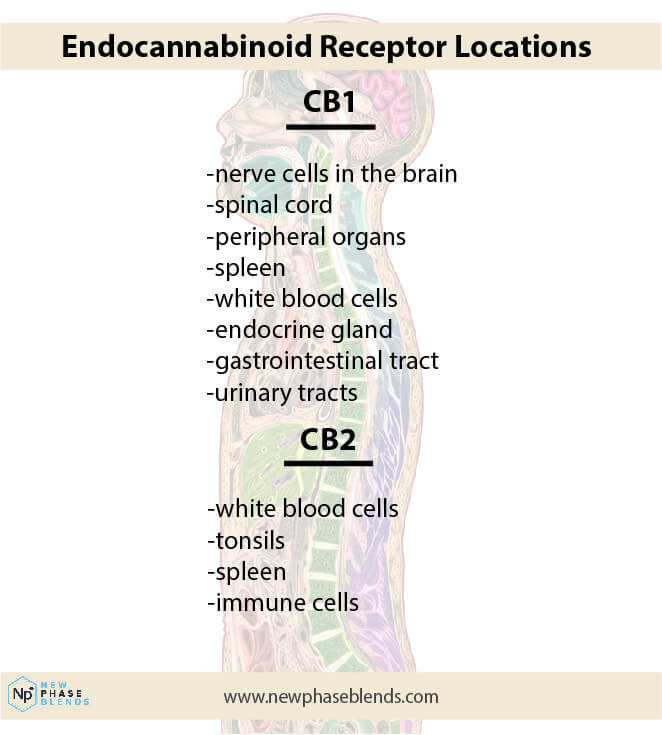
According to the Journal of Internet Medicine Research (2021), utilizing data from a medicinal cannabis-tracking app, this study analyzed 991 Canadian medicinal cannabis users who tracked changes in their insomnia symptoms across 24,189 recorded sessions. The results indicated significant reductions in insomnia symptom severity after cannabis use, highlighting the potential of cannabinoids as a treatment option for sleep disorders.
Addressing Underlying Causes of Insomnia
Many cases of insomnia are secondary to other conditions. CBD shows promise in addressing some common contributors to poor sleep:
Anxiety and Stress Reduction: For many insomnia sufferers, racing thoughts and anxiety prevent sleep onset. Research indicates CBD may have anxiolytic (anxiety-reducing) properties, potentially helping calm the mind before bedtime. A 2019 study published in The Permanente Journal found that 79.2% of participants reported decreased anxiety scores after CBD treatment, with sleep scores improving in 66.7% of patients.
Pain Management: Chronic pain is another common sleep disruptor. CBD has demonstrated anti-inflammatory and analgesic properties that might help reduce pain-related sleep disturbances. By alleviating discomfort, CBD may make it easier to find a comfortable position and maintain sleep throughout the night.
Regulation of Sleep-Wake Cycles: Preliminary research suggests CBD might influence sleep architecture itself. Some studies indicate it may increase total sleep time and improve sleep quality by affecting the sleep cycle, potentially increasing deep sleep (slow-wave sleep) phases while reducing REM sleep disruptions.
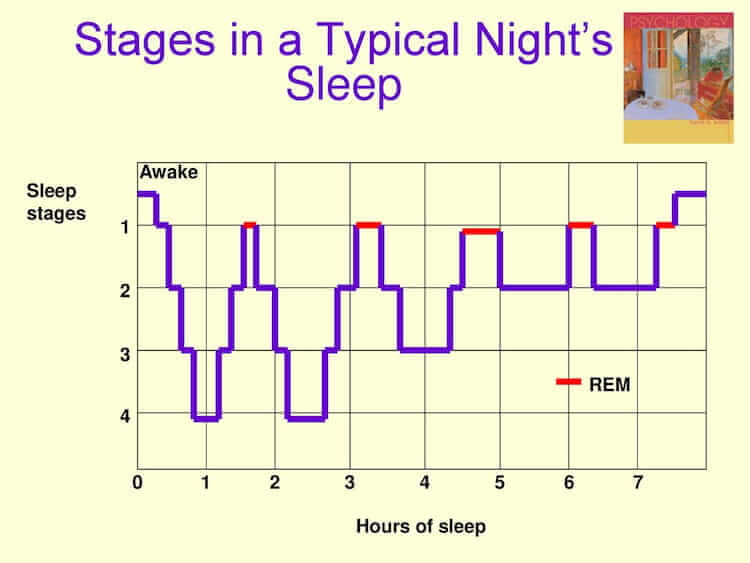
Understanding Insomnia and Its Impact on Your Health
Before diving into how CBD might help with sleep difficulties, it’s important to understand what we’re dealing with. Insomnia isn’t simply the occasional restless night—it’s a persistent condition characterized by difficulty falling asleep, staying asleep, or both, despite having adequate opportunity for sleep.
Insomnia can manifest in various ways:
- Difficulty falling asleep initially
- Waking up frequently during the night
- Early morning awakening with inability to return to sleep
- Feeling unrefreshed despite adequate time in bed
The consequences of chronic insomnia extend far beyond feeling tired. Persistent sleep deprivation affects cognitive function, emotional regulation, immune health, and can contribute to serious health conditions including depression, anxiety, cardiovascular issues, and metabolic disorders.
How Much CBD to Take for Insomnia: Finding Your Optimal Dose
One of the most common questions regarding CBD for sleep is dosage. Unfortunately, there’s no universal answer, as effective dosing can vary significantly based on individual factors.
The general recommendation is to begin with a low dose and gradually increase until you find your “sweet spot.” For sleep, typical starting doses range from 10-25mg, taken about an hour before bedtime.
Several variables affect how your body responds to CBD:
Body Weight and Metabolism: Generally, higher body weight may require higher doses, while faster metabolism might mean the effects wear off more quickly.
The Severity of Your Sleep Issues: More persistent or severe insomnia might require higher doses or longer consistent use before seeing benefits.
Individual Biochemistry: Each person’s endocannabinoid system responds differently to cannabinoids. What works for someone else may not work identically for you.
Product Potency and Formulation: CBD products vary in concentration and delivery method, affecting absorption and efficacy.
Monitoring and Adjusting Your CBD Dose
Keep a sleep journal to track your dosage, timing, and sleep quality. This will help you identify patterns and determine if your current regimen is effective. If you don’t notice improvements after 1-2 weeks at a particular dose, consider gradually increasing by 5-10mg increments.
How Quickly Does CBD Work for Insomnia?
Some people report feeling more relaxed and sleepy within 30-60 minutes of taking CBD to help their insomnia, particularly with certain delivery methods like sublingual tinctures or vaping. However, the most substantial benefits for chronic insomnia often develop with consistent use over time.
The method of consumption significantly affects how quickly CBD takes effect:
Sublingual Tinctures: When placed under the tongue, CBD oil is absorbed directly into the bloodstream through the sublingual vessels, typically producing effects within 15-30 minutes.
Oral Capsules and Edibles: These must pass through the digestive system, delaying onset to 1-2 hours but potentially providing longer-lasting effects.
Vaporized CBD: Inhalation delivers CBD directly to the bloodstream via the lungs, with effects potentially noticeable within minutes, though duration may be shorter.
Topicals: While less common for insomnia specifically, CBD-infused creams or balms may help with localized pain that interferes with sleep, with variable onset times.
For chronic insomnia, patience is essential. Many users report that it takes 2-4 weeks of consistent CBD use before experiencing significant sleep improvements. Think of it as recalibrating your sleep system rather than an immediate sedative effect.
CBD Product Selection for Sleep Improvement
Not all CBD products are created equal, especially when it comes to addressing insomnia.
Full-Spectrum vs. Broad-Spectrum vs. Isolate
Full-Spectrum CBD: Contains all cannabinoids naturally found in the cannabis plant, including trace amounts of THC (under 0.3%). Many experts believe full-spectrum products provide enhanced benefits through the “entourage effect,” where multiple cannabis compounds work synergistically.
Broad-Spectrum CBD: Offers multiple cannabinoids but with THC removed, providing some entourage benefits without THC.
CBD Isolate: Contains only pure CBD, offering precise dosing but without additional cannabinoids that might enhance sleep benefits.
For insomnia specifically, full-spectrum or broad-spectrum products may offer advantages through complementary compounds like CBN, which has demonstrated sedative properties in preliminary research.
Quality Indicators to Look For
When selecting CBD products for insomnia, look for reputable companies that provide certificates of analysis (COAs) from independent laboratories, verifying cannabinoid content and screening for contaminants.
Type: CBD Oil For Sleep
CBD: 66mg per serving
Features: Free shipping, money back guarantee
When it comes to extraction methods, CO2 extraction is considered the gold standard, preserving beneficial compounds while eliminating potential solvents.
Some products combine CBD with other natural sleep aids like melatonin, valerian root, or terpenes known for sedative properties. Many people report a significant increase in effect when mixing CBD and melatonin.
Potential Side Effects of CBD
While generally well-tolerated, CBD side effects are a possibility. Some users report drowsiness (which may actually be beneficial for sleep), dry mouth, digestive changes, fatigue, and changes in appetite.
Drug Interactions
CBD can interact with certain medications by affecting liver enzymes that metabolize drugs. This is particularly important for medications with a “grapefruit warning,” as CBD impacts similar enzymes. Always consult your healthcare provider before combining CBD with prescription medications.
Integrating CBD Into a Comprehensive Sleep Strategy
For maximum benefit, CBD should complement other evidence-based sleep practices rather than serving as a standalone solution.
Sleep Hygiene Enhancements
Combine CBD with proven sleep hygiene practices like maintaining consistent sleep-wake times and creating a dark, cool, quiet sleep environment. Limiting screen time before bed and avoiding caffeine and alcohol near bedtime are also crucial elements of good sleep hygiene.
Complementary Natural Approaches
Consider integrating CBD with other natural sleep supports such as relaxation techniques, mindfulness meditation, and gentle yoga or stretching before bed.
Conclusion: Is CBD Right for Your Sleep Challenges?
CBD shows promising potential for addressing insomnia, particularly when the sleep difficulties stem from anxiety, pain, or stress. However, it’s not a magical cure-all, and results vary significantly between individuals.
The most successful approach typically involves starting with low doses, being patient and consistent, choosing high-quality products, and integrating CBD into a comprehensive sleep improvement strategy. By combining CBD with solid sleep hygiene practices and addressing underlying contributors to insomnia, you maximize your chances of finding the restful sleep that’s been eluding you.
Remember that everyone’s journey to better sleep is unique. What works for others may not work identically for you, so be prepared to experiment thoughtfully with guidance from healthcare professionals when appropriate. With patience and the right approach, CBD might become a valuable tool in your quest for more restful nights and more energetic days.



